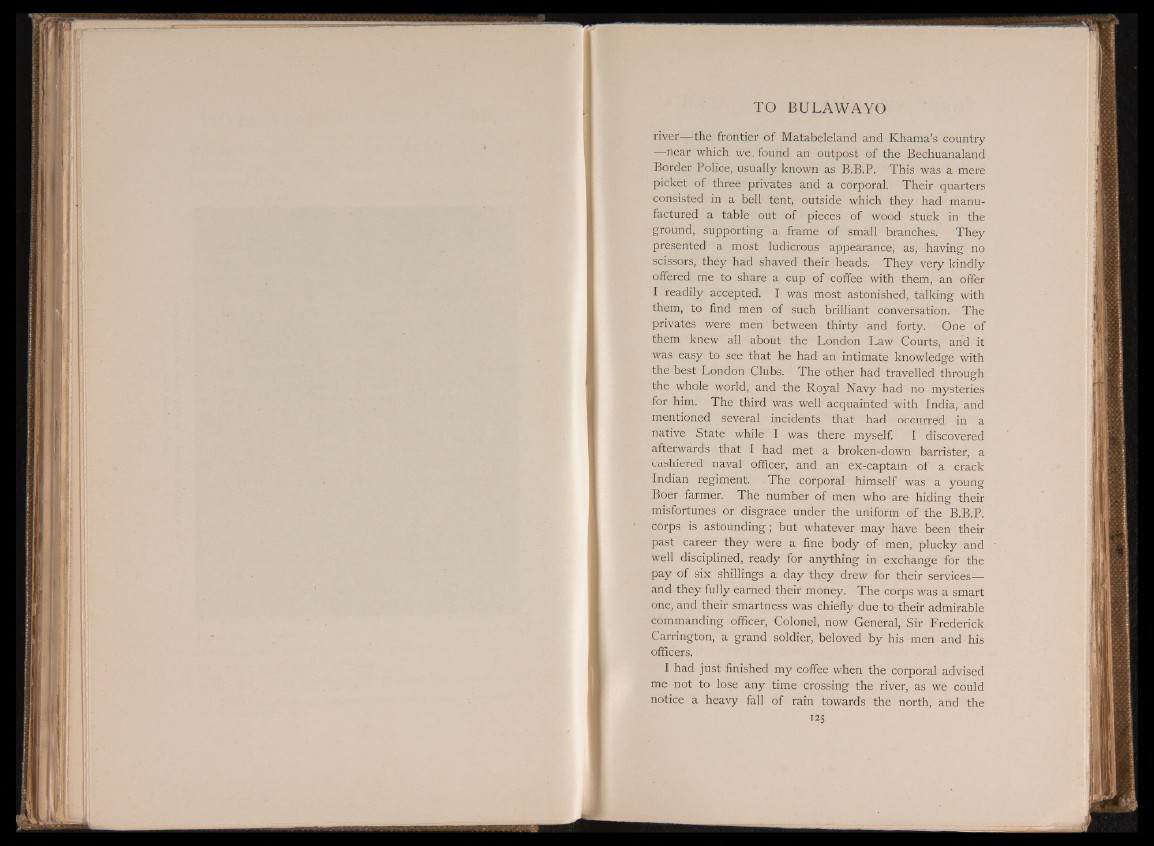
river—the frontier of Matabeleland and Khama’s country
—near which we. found an outpost of the Bechuanaland
Border Police, usually known as B.B.P. This was a mere
picket of three privates and a corporal. Their quarters
consisted in a bell tent, outside which they had manufactured
a table out of pieces of wood stuck in the
ground, supporting a frame of small branches. They
presented a most ludicrous appearance, as, having no
scissors, they had shaved their heads. They very kindly
offered me to share a cup of coffee with them, an offer
I readily accepted. I was most astonished, talking with
them, to find men of such brilliant conversation. The
privates were men between thirty and forty. One of
them knew all about the London Law Courts, and it
was easy to see that he had an intimate knowledge with
the best London Clubs. The other had travelled through
the whole world, and the Royal Navy had no mysteries
for him. The third was well acquainted with India, and
mentioned several incidents that had occurred in a
native State while I was there myself. I discovered
afterwárds that I had met a broken-down barrister, a
cashiered naval officer, and an ex-captain of a crack
Indian regiment. The corporal himself was a young
Boer farmer. The number of men who are hiding their
misfortunes or disgrace under the uniform of the B.B.P.
corps is astounding; but whatever may have been their
past career they were a fine body of men, plucky and
well disciplined, ready for anything in exchange for the
pay of six shillings a day they drew for their services—
and they fully earned their money. The corps was a smart
one, and their smartness was chiefly due to their admirable
commanding officer, Colonel, now General, Sir Frederick
Carrington, a grand soldier, beloved by his men and his
officers.
I had just finished my coffee when the corporal advised
me not to lose any time crossing the river, as we could
notice a heavy fall of rain towards the north, and the
125